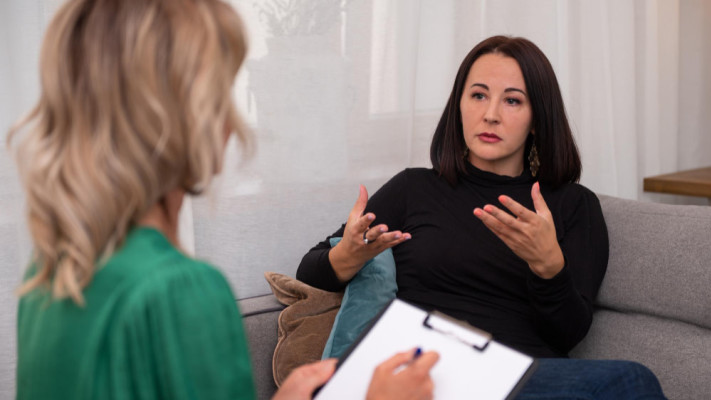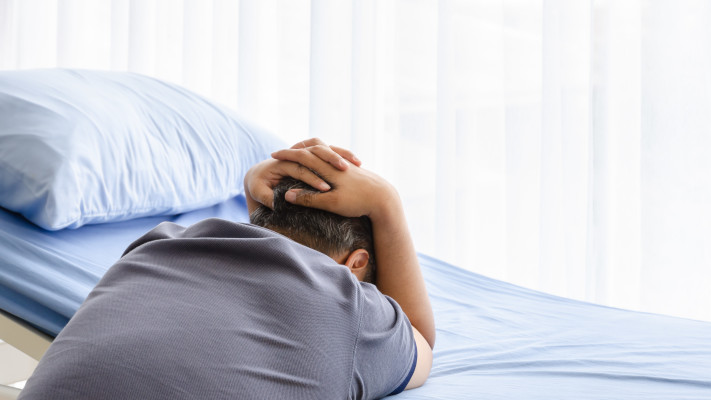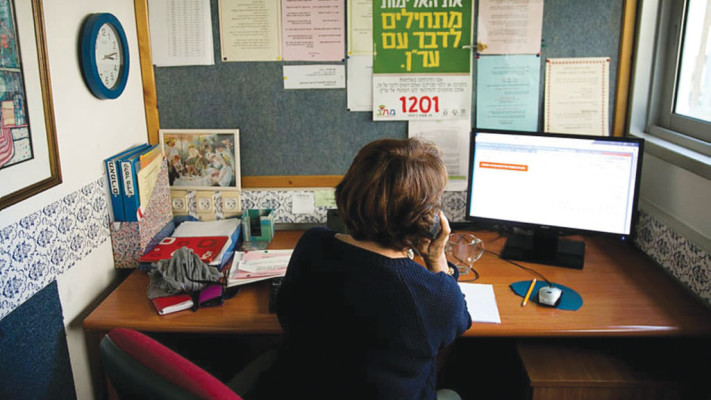There is something to be done: the tense security situation may arouse feelings of anxiety in the Israeli public. Despite the familiar dealing with security threats, it is possible that the feelings will intensify and affect daily functioning.

It is sometimes difficult to distinguish between natural fear and anxiety. This can be assessed by examining the strength of the reaction: do I avoid activities significantly more than others, is the routine significantly affected in relation to the environment, and are thoughts about the situation disturbing even at home when we are in a safe environment? It is important to remember that anxiety is a natural response to stressful situations, but in extreme cases it can damage the quality of life.
Anxiety results from the use of communication between the nerve cells (neurons) in the brain and between the chemical substances secreted there. When we experience sudden stress or real threat, the "fight or flight" system is activated. This system causes a series of physiological reactions including:
- Increased heart rate: designed to pump more blood to the muscles, to prepare for action.
- Increased blood flow to the muscles: causes shivering , in preparation for physical activity.
- Decreased blood flow to the digestive system: causes nausea .
- Difficulty absorbing new stimuli: the brain is focused on the threat, and is less available for other input.
In a normal state, after the threat passes, the "fight or flight" system relaxes and the body returns to a resting state. However, in people who suffer from anxiety, this system may remain active even after the threat has passed, which causes prolonged feelings of anxiety, even when there is no objective reason to fear.

It is important to note that anxiety is a natural and normal response to stressful situations. However, when anxiety becomes a regular phenomenon and impairs daily functioning, it is important to seek professional help. Psychological therapy can help understand the source of anxiety and develop tools to deal with it. Anxiety, despite being a natural response to stressful situations, can become oppressive and even disabling when it is powerful or prolonged.
Here are some steps that may help deal with anxiety:
- Maintaining a routine:
• Maintaining a regular daily routine as much as possible, which includes daily activities such as work, studies, recreation and social life.
• Maintaining a normal routine provides a sense of control and security , and helps the brain understand that the environment is safe.
• Adherence to a healthy diet, adequate sleep and physical activity also contribute to a sense of well-being and an improvement in mood. - Identifying anxiety:
• It is sometimes difficult to distinguish between natural fear and anxiety. This can be estimated by examining the strength of the reaction in relation to others:
o Do I avoid activities significantly more than others?
o Has my routine been significantly affected in relation to my environment?
o Do the thoughts about the situation bother me even at home, in a safe environment? - Sharing and connecting:
• Avoiding isolation and talking about difficult feelings with friends, family members or a professional such as a psychologist.
• Sharing experiences allows legitimization of feelings, processing thoughts and receiving emotional support. - Active activity:
• Performing diversionary activities that distract from anxiety and restore a sense of control, such as hobbies, sports or volunteering. These actions contribute to reducing the feeling of helplessness and restore the feeling of control.
It is important to remember that anxiety is a common and treatable phenomenon. There is no shame in seeking professional help, and it can help significantly in improving the quality of life. There are many and varied therapeutic techniques, which allow customization for each person and their needs. Among other things, the psychological treatment may incorporate slow exposure to fear while calming anxiety, practicing correct, relaxing breathing, and of course trying to normalize the situation and restore control to the person.
As mentioned, psychological therapy is the recommended initial line of treatment for dealing with anxiety. However, in cases where the psychological treatment is insufficient or when a significant impairment of function is caused, it is possible to turn to drug treatment.
The role of the drug treatment:
- Protection against overwhelming anxiety: the drugs help reduce the intensity of the symptoms and enable better coping with stressful situations.
- Treatment of secondary symptoms: low mood, sleep difficulties, concentration disorders and more.
It is important to note that taking sedatives is not recommended as initial treatment . They may impair the ability to cognitively process the traumatic event, increase the risk of post-trauma and even lead to long-term addiction. However, for those who are interested after trying other treatments, the most effective drugs for treating anxiety are antidepressants and anti-anxiety drugs from the SSRI or SNRI groups. These are drugs with a high safety profile and are not addictive. It is important to be patient . These drugs usually begin to work after 4-6 weeks, and sometimes even longer.

In cases of acute anxiety or exposure to a traumatic event, the doctor sometimes recommends avoiding the use of sedatives. Correct drug treatment, combined with psychological treatment , can lead to a significant recovery from most cases of anxiety. Either way, it's important to seek help as soon as possible: the longer you delay, the harder it is to treat the anxiety and it may get worse.
Where can you turn in case of mental distress?
- ARAN – mental first aid: 1201
- Telephone of the National Therapeutic Resilience Center *5486. The center operates on Sunday-Friday from 08:00 to 20:00
- The distress line of the health funds:
United 3833*
Leumit 507*
Maccabi 3555*
General 8703 *






